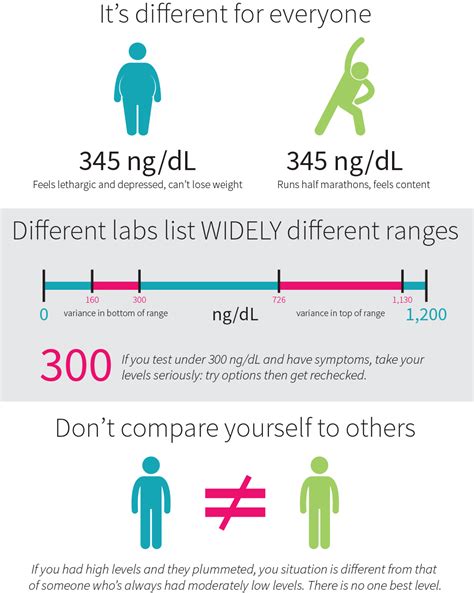What specific lifestyle changes naturally optimize male testosterone for peak performance?

Testosterone, often hailed as the cornerstone of male vitality, plays a crucial role far beyond libido and muscle mass. Optimal testosterone levels are linked to better energy, mood, cognitive function, bone density, and overall metabolic health, all contributing to peak performance in every aspect of life. While synthetic options exist, the most sustainable and beneficial path to optimizing testosterone involves a series of natural lifestyle adjustments. These changes work synergistically to support the body’s innate hormonal balance, promoting long-term health and vitality.
The Foundation: Nutrient-Rich Diet
Your diet is a powerful lever for testosterone production. Focus on whole, unprocessed foods that provide a broad spectrum of nutrients. Key macronutrients and micronutrients are essential:
- Healthy Fats: Cholesterol is a precursor to testosterone, making healthy fats crucial. Incorporate sources like avocados, nuts, seeds, olive oil, and fatty fish (salmon, mackerel) rich in omega-3s.
- Quality Protein: Adequate protein intake supports muscle maintenance and overall hormonal health. Prioritize lean meats, poultry, eggs, and plant-based proteins like legumes and quinoa.
- Complex Carbohydrates: These provide sustained energy and prevent cortisol spikes from low blood sugar. Opt for whole grains, fruits, and vegetables.
- Micronutrients: Zinc (oysters, beef, pumpkin seeds), Vitamin D (fatty fish, fortified foods), and Magnesium (leafy greens, nuts) are particularly vital for testosterone synthesis. Boron has also shown promise in some studies.
Conversely, limit highly processed foods, excessive sugar, and trans fats, which can negatively impact hormonal balance and contribute to inflammation.

The Power of Movement: Exercise Strategies
Regular physical activity, particularly specific types, is a potent testosterone booster. The key is balance and smart training:
- Strength Training: Lifting heavy weights, especially compound exercises like squats, deadlifts, bench presses, and rows, has been consistently shown to elevate testosterone levels. Aim for 3-4 sessions per week, focusing on progressive overload.
- High-Intensity Interval Training (HIIT): Short bursts of intense exercise followed by brief recovery periods can also stimulate testosterone production and improve overall metabolic health.
- Avoid Chronic Cardio: While beneficial for cardiovascular health, excessive long-duration, low-intensity cardio can sometimes lead to an increase in cortisol, potentially suppressing testosterone. Incorporate it mindfully.
- Prevent Overtraining: Pushing your body too hard without adequate recovery can lead to increased cortisol and decreased testosterone. Listen to your body and schedule rest days.

Prioritizing Rest: The Sleep Connection
Sleep is not merely downtime; it’s a critical period for hormonal regulation, including testosterone production. Most of your daily testosterone is produced during sleep:
- Aim for 7-9 Hours: Consistent, high-quality sleep is paramount. Studies show that even a week of restricted sleep can significantly lower testosterone levels in healthy young men.
- Optimize Sleep Environment: Ensure your bedroom is dark, quiet, and cool. Avoid screens an hour before bed and stick to a consistent sleep schedule, even on weekends.
- Address Sleep Disorders: Conditions like sleep apnea can severely disrupt hormonal balance. Seek medical advice if you suspect a sleep disorder.

Mastering Stress and Mindfulness
Chronic stress is a testosterone killer. When you’re stressed, your body releases cortisol, a hormone that directly antagonizes testosterone. High cortisol levels can suppress testosterone production and even increase its breakdown:
- Stress Reduction Techniques: Incorporate practices like meditation, deep breathing exercises, yoga, or spending time in nature into your daily routine.
- Time Management: Effectively managing your time and setting realistic boundaries can reduce feelings of overwhelm.
- Social Connections: Nurturing healthy relationships and engaging in social activities can significantly reduce stress.

Environmental and Supplemental Factors
Beyond the core pillars, other factors contribute to optimal testosterone:
- Sunlight and Vitamin D: Direct sun exposure helps your body produce Vitamin D, a crucial steroid hormone linked to testosterone levels. If sun exposure is limited, consider a high-quality Vitamin D3 supplement.
- Limit Endocrine Disruptors: Exposure to xenoestrogens found in plastics (BPA, phthalates), pesticides, and certain personal care products can mimic estrogen in the body, potentially lowering testosterone. Opt for glass containers, organic foods, and natural products where possible.
- Maintain a Healthy Weight: Obesity, especially abdominal fat, can increase estrogen and reduce free testosterone. Losing excess weight is often one of the most effective ways to boost testosterone naturally.
- Moderate Alcohol Intake: Excessive alcohol consumption can negatively impact liver function and testicular health, leading to lower testosterone. Moderate intake is key.

Conclusion: A Holistic Approach to Peak Performance
Optimizing testosterone naturally is not about a single magic bullet, but rather a holistic commitment to a healthy lifestyle. By consistently implementing these dietary, exercise, sleep, and stress management strategies, men can significantly enhance their testosterone levels. This integrated approach not only supports peak physical and mental performance but also contributes to overall longevity, vitality, and a higher quality of life. The journey requires patience and consistency, but the rewards of naturally balanced hormones are profound and enduring.









